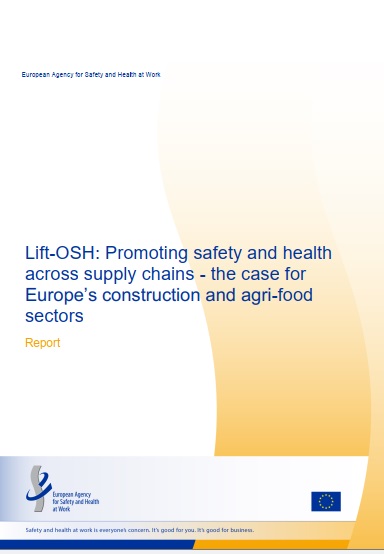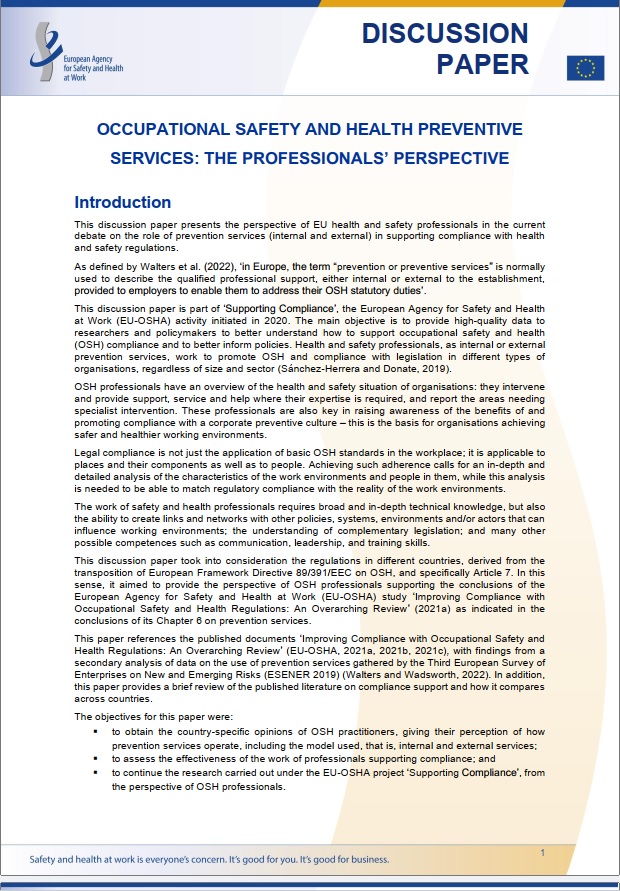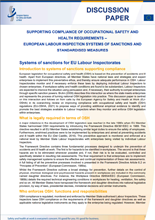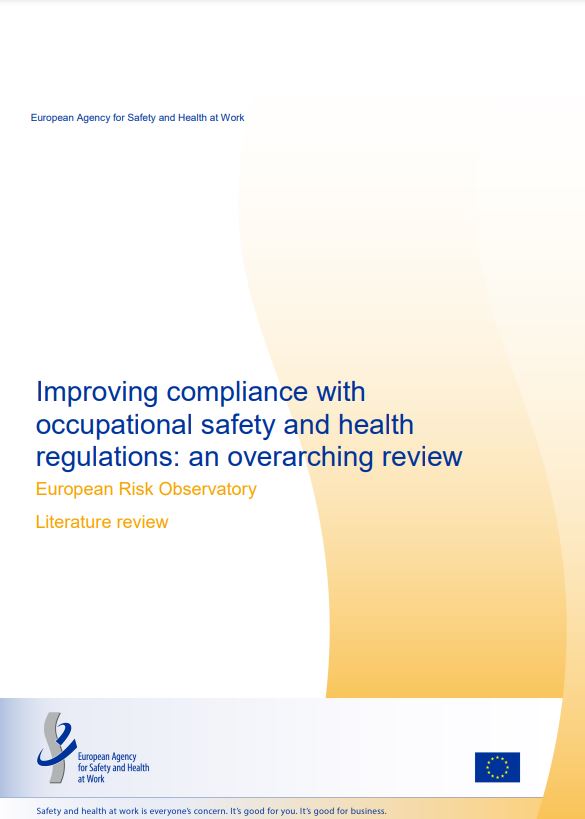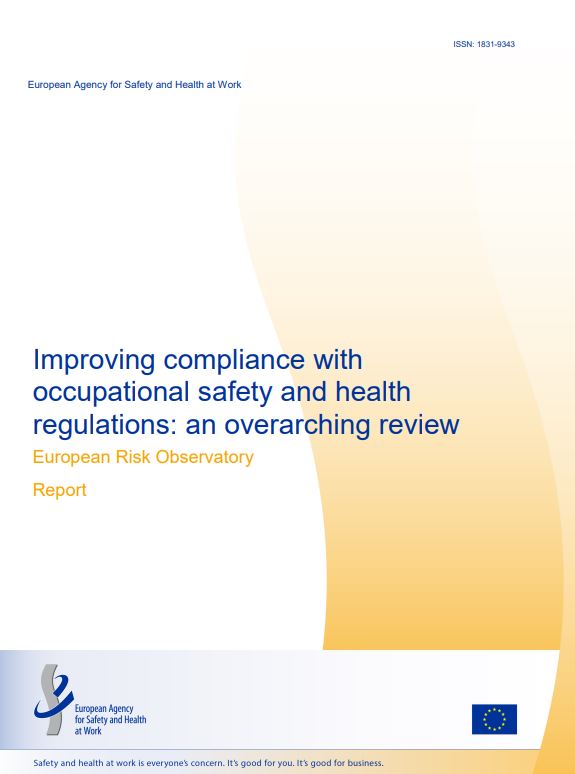
© EU-OSHA/Jim Holmes
As the structure, organisation and control of work continues to change, ensuring that businesses fulfil their obligations under occupational safety and health (OSH) regulations is becoming more important than ever. EU-OSHA’s activity on supporting OSH compliance (2021-2024) looks at the factors that influence compliance with OSH standards, with the aim of fostering an organisational context that supports companies’ efforts to protect worker safety and health.
Improving OSH compliance in enterprises
Complying with OSH regulations can be challenging, particularly for micro and small enterprises (MSEs). However, previous EU-OSHA research finds that certain external factors have a strong influence on OSH compliance:
- legal enforcement of regulations
- supply chain influences
- external OSH services
- social or sectoral norms
- financial support.
This activity aims to follow up on these findings, by reviewing the types of support available and exploring innovative strategies for supporting compliance. Although MSEs are a focus, the important role played by larger companies in creating an environment that promotes compliance is also considered.
Phases of the research programme
Following an initial overarching review of OSH compliance, two major strands of research were identified for further in-depth studies:
- The first relates to market-based approaches to promoting OSH, and looks at policies and strategies that influence supply chain relations to improve compliance with OSH regulations, focusing particularly on the agri-food and construction sectors.
- The second strand focuses on state influences, that is, regulatory and enforcement approaches to ensuring OSH compliance, to identify innovative practices adopted by inspectorates and prevention services to support OSH.
The impact of COVID-19 on OSH compliance
The overarching review also identifies the need to examine how the challenges posed by COVID-19 affect OSH compliance. This becomes most obvious in the agri-food and construction sectors, as workers in these sectors are among those most affected by the pandemic and supply chain disruptions. The research aims to inform the development of policies that improve working conditions by helping businesses to comply with OSH regulations.

